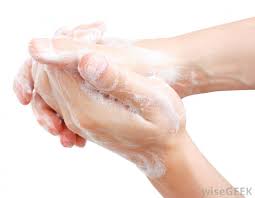 In recent years, research has begun to thoroughly evaluate the role that a healthy colon and intestinal tract plays in the overall health of both children and adults. Interestingly, there are over 100 different intestinal parasites that have been identified. A parasite is an organism that lives in or on another living organism and that either wholly, or partially, receive its nutrients from the host organism. This process usually causes harm to the host while allowing the parasite to grow.
In recent years, research has begun to thoroughly evaluate the role that a healthy colon and intestinal tract plays in the overall health of both children and adults. Interestingly, there are over 100 different intestinal parasites that have been identified. A parasite is an organism that lives in or on another living organism and that either wholly, or partially, receive its nutrients from the host organism. This process usually causes harm to the host while allowing the parasite to grow.
Essentially, this means that parasites are freeloaders that live in your body and survive on the nutrition that is supposed to be going to your cells. They release toxic products that damage your system. Some specialists believe that over 40% of the world’s population is chronically infected by worms, only one of the more common parasites that inhabit the colon.
One immediate question that comes to mind when individuals find they may be infested with a parasite is “how can a parasite possibly live in my body and I don’t even know it’s there?” The purpose of the parasite is to be sure that the host doesn’t know it’s there because if it’s detected it will be eradicated. Most of the time we recognize that people in third world countries have a high incidence of parasite infestation, and we recognize that the animals and pets in our home must use parasite preventatives, but we dismiss the idea that we also may be infested.
 Some of the more common colon parasites include Giardia, Toxoplasma, Roundworms, Hookworms, trichinella, cryptosporidium, pinworms, whipworms, tapeworms and flukes. Each of these particular parasites carry with it specific symptoms they cause, illnesses at which they are the root and entries into the body. (1,2)
Some of the more common colon parasites include Giardia, Toxoplasma, Roundworms, Hookworms, trichinella, cryptosporidium, pinworms, whipworms, tapeworms and flukes. Each of these particular parasites carry with it specific symptoms they cause, illnesses at which they are the root and entries into the body. (1,2)
However there is a way of preventing these parasites from entering the body. Wash your hands frequently because parasites and parasite eggs that you may have come into contact with can enter the intestinal tract through the mouth. Wash your hands before eating or handling food and after using the toilet, handling pets, cooking or changing a baby’s diaper.
A contaminated water source is a frequent source of parasitic infection. If you are unsure of the safety of the water which you are drinking then use bottled water for drinking or cooking and do not take a bath or swim in water that may be infested with parasites. Be sure to include washing all fruits and vegetables in water that is not contaminated.
 Colon parasites can enter the body through the soles of the feet so be sure to wear shoes. This means at a beach or park that may contain animal feces or even in the showers. If you are unsure of the area in which you are showering or walking wear flip-flops or rubber soled shoes to protect your feet.
Colon parasites can enter the body through the soles of the feet so be sure to wear shoes. This means at a beach or park that may contain animal feces or even in the showers. If you are unsure of the area in which you are showering or walking wear flip-flops or rubber soled shoes to protect your feet.
Some parasitic worms have the ability to fool our body into thinking that they are normal tissue. In this way if they enter your immune system and can do physical trauma to the intestines or the circulatory system, damage certain organs by lumping together into balls or tumors, rob us of vital vitamin and mineral nutrients and give off metabolic waste products that poison the body. Parasitic worms can also depress the immune system and cause fatigue and illness, destroy cells faster than they can be regenerated, and increase the imbalance in intestinal flora.
Some of the symptoms of a colon parasite infection includes grinding the teeth while asleep, pain in the backside of your shoulders, gnome hands, drooling while sleeping, lethargy, headaches, heart pain, asthma, forgetfulness, loss of appetite and gas bloating.
Most of these symptoms are generalized and can fit many other diagnoses. For this reason it is important to be evaluated by your primary care physician to look for underlying medical conditions which may be the cause of your symptoms. Your physician should also do a stool sample for ova and parasites looking for parasites in the colon and which may be causing your symptoms.
Once identified, your physician will recommend a medical intervention for the treatment of your colon parasites. On the other hand, there are also many parasite remedies which have a more natural basis and can be found in the health food store. The most important piece of the puzzle is to identify the parasite with which you are working in order to develop a treatment protocol to eradicate the problem.
References:
(1) American Family Physician: Common Intestinal Parasites
http://www.aafp.org/afp/2004/0301/p1161.html
(2) University of Maryland Medical Center: Intestinal Parasites
http://www.umm.edu/altmed/articles/intestinal-parasites-000097.htm


Leave a Reply